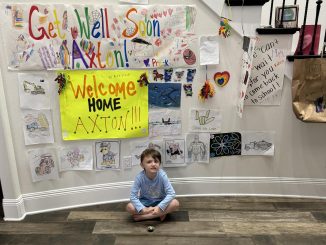
With the birds and the bees come allergies each spring for most of the country, but allergy medication is not just for springtime in Louisiana.
New St. Charles residents or those with reactions to some wintertime allergens might need to stock up at the pharmacy this month.
Rene Schmit, with the LSU AgCenter, said that residents who are new to the area can sometimes experience a surge in allergic reactions.
“You could encounter different plant species and have different reactions than what you are used to,” Schmit said. “That can be expected if you move around to different locations.”
Dr. Mohan Gandhi, an allergy specialist with St. Charles Parish Hospital, said the south is worse than other areas in the country when it comes to allergies because of the warm-temperate to sub-tropical climate. Many residents can even experience allergy problems year-round.
Gandhi said that while spring and fall are the peak pollen-allergy seasons, wintertime can be bad for those who are allergic to mold or dust. Because of warmer weather year-round, mold can flourish and some plants can live through the winter instead of dying for the season as they would in other regions.
“We definitely have a longer pollen allergy season because we have a very short period of winter,” Gandhi said. “In the colder months, mold can grow and the heater can kick up dust, so those allergies are bad in the winter too.”
He said that mold allergies are particularly bad in Louisiana because of the moist weather which tends to allow mold to grow freely.
But the warm, wet weather doesn’t mean allergy disaster for everyone. Gandhi said that every person is different – even a group of people who grew up in St. Charles and have similar ancestral backgrounds could have completely different reactions to local allergens.
“Everyone is different when it comes to allergies,” he said.
There is little that people can do to avoid allergic reactions, but Gandhi had a few suggestions. If you are allergic to animal dander but have pets, make sure not to allow pets in the room where you sleep. If you are experiencing bad allergies from pollen outside, change into clean clothes when entering the house at the end of the day. And for those suffering from mold or dust allergies, keeping a clean home and having hard floors is always helpful.
Rene Schmit, with the LSU AgCenter said that pollen was particularly bad last year due to the drought in south Louisiana.
“This year we had a particularly high incidence of pollen in the air from pine trees and certain oaks that occurred because of the drought,” Schmit said. “These trees came under distress which triggered them to flower in order to reproduce.”
Gandhi said that high levels of pollen are common in Louisiana during the spring and fall especially, but that even if levels were low there would most likely be other factors contributing to bad allergy reactions.
“Every year there’s something,” he said, laughing. “You really can’t avoid them, but you can try not to walk outside during peak pollen periods or take (allergy medications) to control the symptoms.”
The LSU AgCenter offers a few tips for gardeners this spring that can help the entire neighborhood. Planting flowers that are insect-pollinated, like Goldenrod, instead of airborne, like Ragweed or plantain, can cut down on the amount of pollen in the air come spring. It’s also important to keep Bermuda grass at bay – the highly allergic plant flourishes in gardens.
The good news is that the prettier flowers that gardeners are often attracted to are beautiful in order to attract insects for pollination. Wind-pollinated flowers are usually smaller and less-noticeable.
Like summertime mosquitoes, spring pollen counts are higher before 10 a.m. and at dusk, so the center suggests gardening and doing other outdoor activities with that in mind.




Be the first to comment